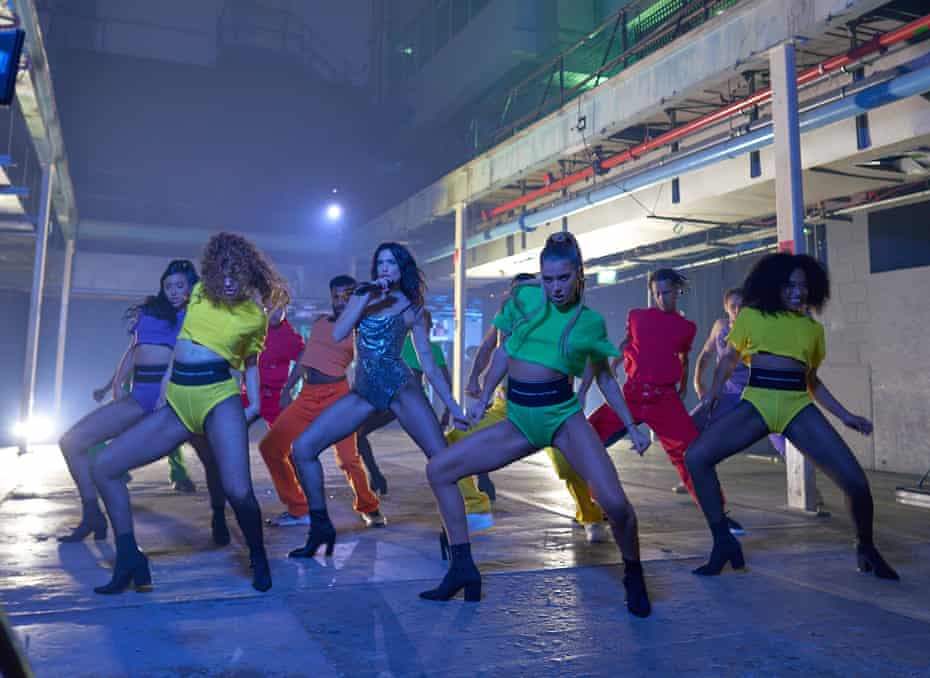Before the pandemic struck, it wasn’t uncommon for DJs to fly between three European cities in a weekend. The carbon footprint of globetrotting tours was massive. Festivals and gigs were criticised for the levels of waste they created. Streaming services, requiring ever more processing power, have had a burgeoning impact, as has the recent craze of selling music via NFTs (non-fungible tokens).
But a series of announcements last week, coordinated by the Music Declares Emergency collective, have challenged the idea that the industry is not taking the climate emergency seriously. After a uniquely difficult year for those in live music, perhaps this is an inflection point: can the recovery from Covid-19 be green?
“The music industry has the opportunity to lead here,” says Lewis Jamieson, a spokesman for Music Declares Emergency. “It can become the exemplar of a green recovery, and help the public to understand and support what that idea means.”
British independent label Ninja Tune has just announced ambitious and detailed plans in response to the new sustainability drive from the European Independent Music Companies Association. The label’s funds and pensions are divested from fossil fuels, it is installing renewable energy systems in its London headquarters and it is encouraging the pressing plants that supply its vinyl to switch to green energy.
Beggars Group, which includes indie labels such as 4AD, XL and Rough Trade, also announced major new carbon reduction commitments this week. Across the manufacturing and distribution of vinyl and CDs, digital distribution, and business travel, the group aims to cut their emissions almost in half by 2030, at a rate they say is aligned with the Paris agreement’s goal to limit global warming to 1.5 degrees. Head of sustainability Will Hutton says that “the arts have an immensely powerful platform to help ignite social and legislative change. We need everyone involved – the live sector, record companies, streaming partners, and of course artists.”

One new idea – also announced this week, and affiliated with Brian Eno – is Earth Percent, which is aiming to raise $100m (GBP72m) by 2030 from the industry itself to transition towards sustainability. The proposal is for artists, companies and individuals to commit a small percentage of their revenue to Earth Percent, which will redistribute the money to organisations working on the climate emergency, including those focused on the music industry, such as A Greener Festival, Music Declares Emergency and Julie’s Bicycle.
“This is the time to shake up how things are done across the industry,” says Sarah Ditty, head of programs at Earth Percent. “We need to be looking at how live shows, touring, recording, streaming, merchandise and engaging fans can function in a way that ensures artists and their teams can make a good living while minimising environmental impact.”
These recent initiatives are not the first signs of change: Coldplay, Massive Attack, Ellie Goulding and Radiohead have all spoken out on the climate crisis and made changes to the way they work, while Shambala festival has removed meat from its on-site catering and is powering the event with 100% renewable energy.
But touring is set to get under way again this summer: England’s first non-distanced large gig of 2021 will be a trial run headlined by the Stockport band Blossoms in May. And with fans snapping up tickets for festivals and gigs, there’s a risk that the industry’s carbon emissions could rebound to a higher level than they were before the pandemic.
Much will depend on forces beyond the music industry’s direct control. “We need change in the transport networks to make our record distribution more sustainable. We need change in the energy networks to reduce the footprint of the pressing plants we use,” says Peter Quicke, co-chief of Ninja Tune.
But musicians have platforms and the cultural clout that can inspire audiences in large numbers. Many artists have been reluctant to find their voice on climate change for fear of being accused of hypocrisy – when the 1975 collaborated with climate campaigner Greta Thunberg in 2019, the Conservative politician David Davies responded by writing a sarcastic open letter asking them if they were travelling by train or yacht on their upcoming world tour – and few fans or artists are likely to want to swap out live shows for streams on a permanent basis.
But virtual events driven by the star power of Dua Lipa or Nick Cave, or the well-received Grammys broadcast, have set a precedent that should not be discarded. The environmental impact of audiences travelling to shows adds to the carbon emissions of the production itself, and so a well-produced “global livestream” in place of a leg of a tour is one possibility.

Last Night a DJ Took a Flight, a recent report on the dance music industry, argued that tours could be routed more efficiently, local scenes and artists could be better nurtured to reduce the pull of foreign superstars, and exclusivity clauses (where artists can’t play more than one show locally) could be challenged.
Relentless touring – driven by low income from streams and physical format sales – is precarious and environmentally unsustainable, so music is taking seriously the idea of green jobs and a “just transition” (a term coined by the global trade union movement to prioritise workers’ rights and reduce inequalities). In 2020, more than 800 artists and creative professionals endorsed a letter to Oliver Dowden calling for a “just and green” cultural recovery from Covid-19, including the demand that all government funding for the arts is aligned with national climate targets.
Achieving that will require commitment from various sections of society – and Chiara Badiali of Julie’s Bicycle says: “The pandemic has provided the chance for that reflection to happen in the arts.” Reflection alone is not enough but if the music industry can get its own house in order, maybe it can set the tone for a journey out of the climate crisis.